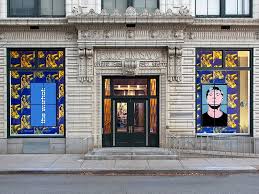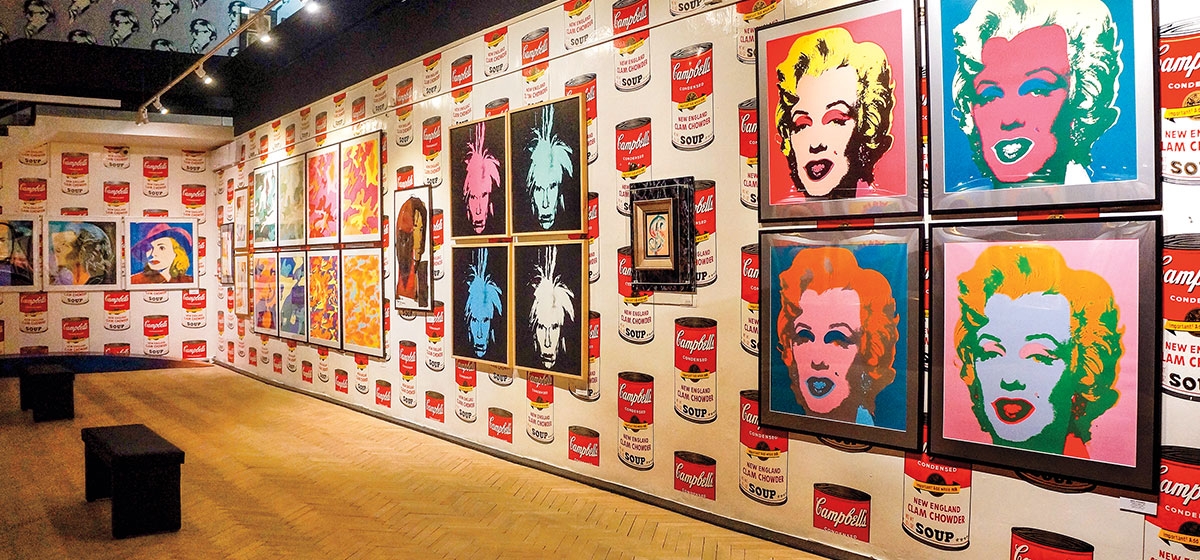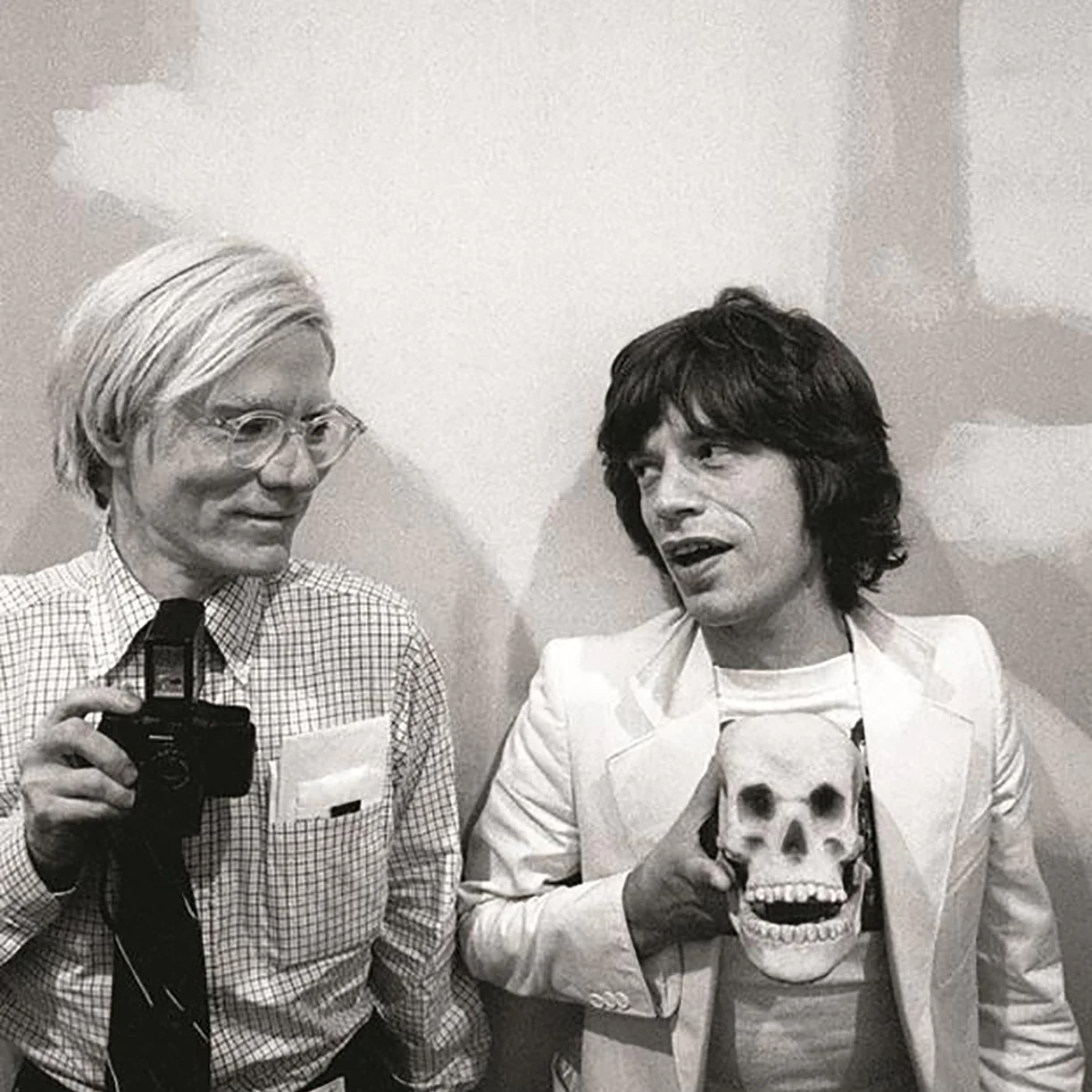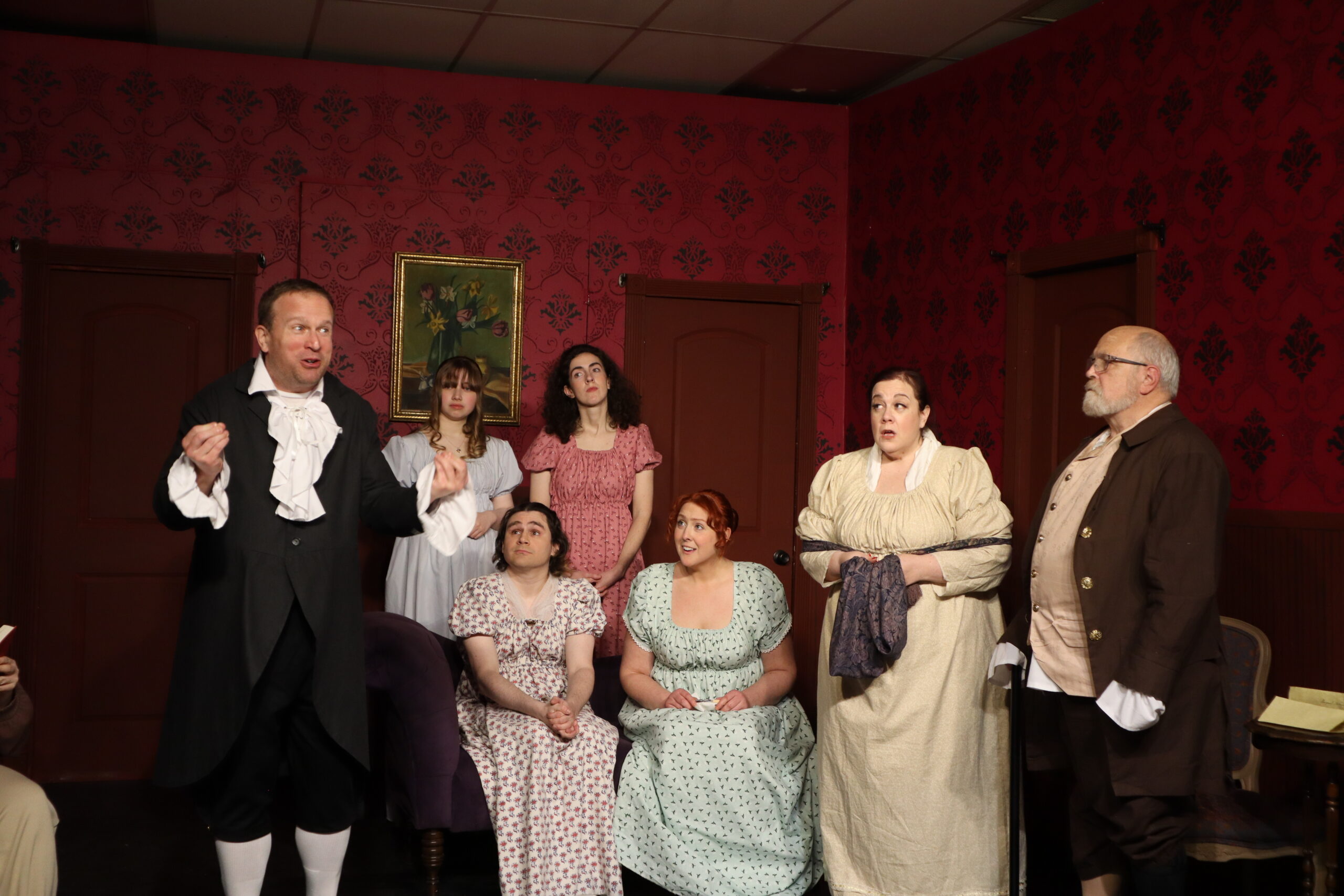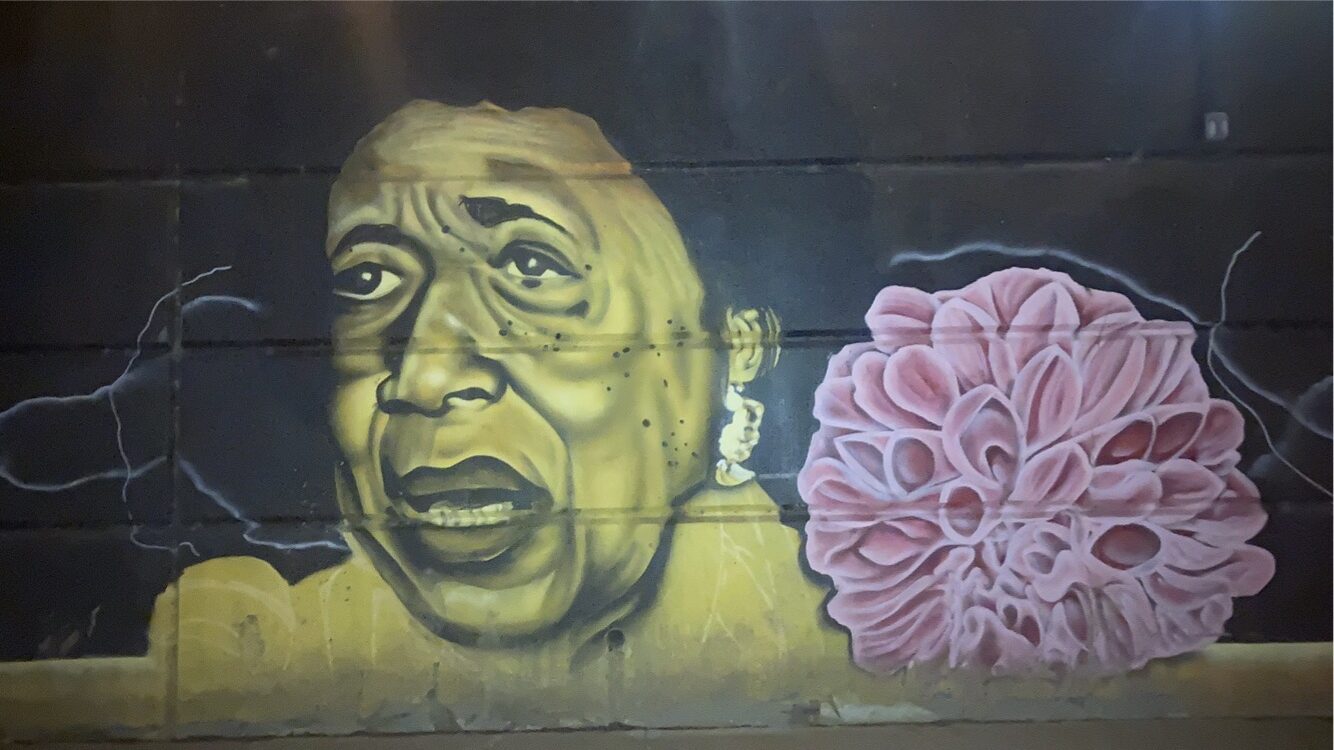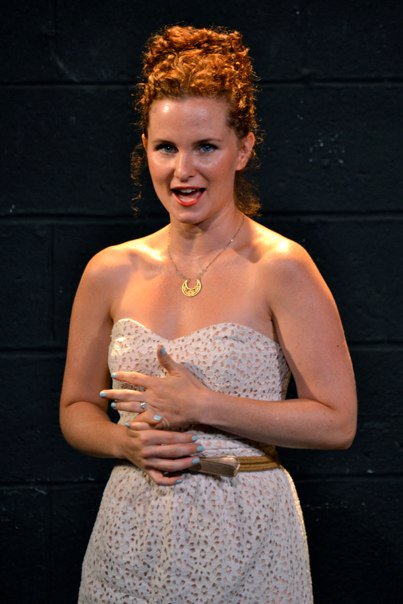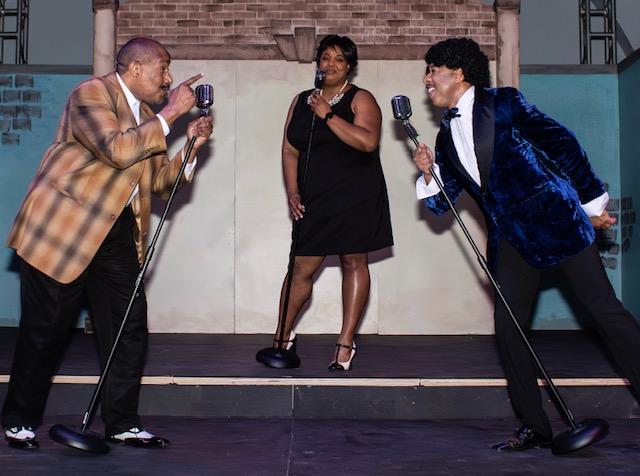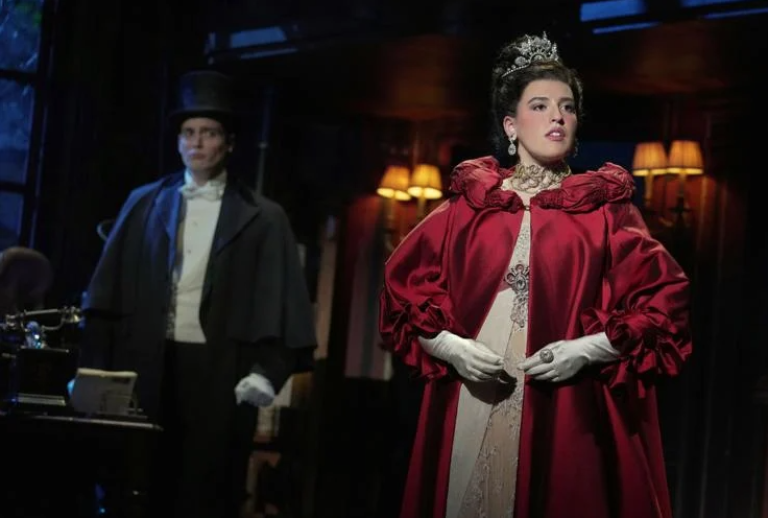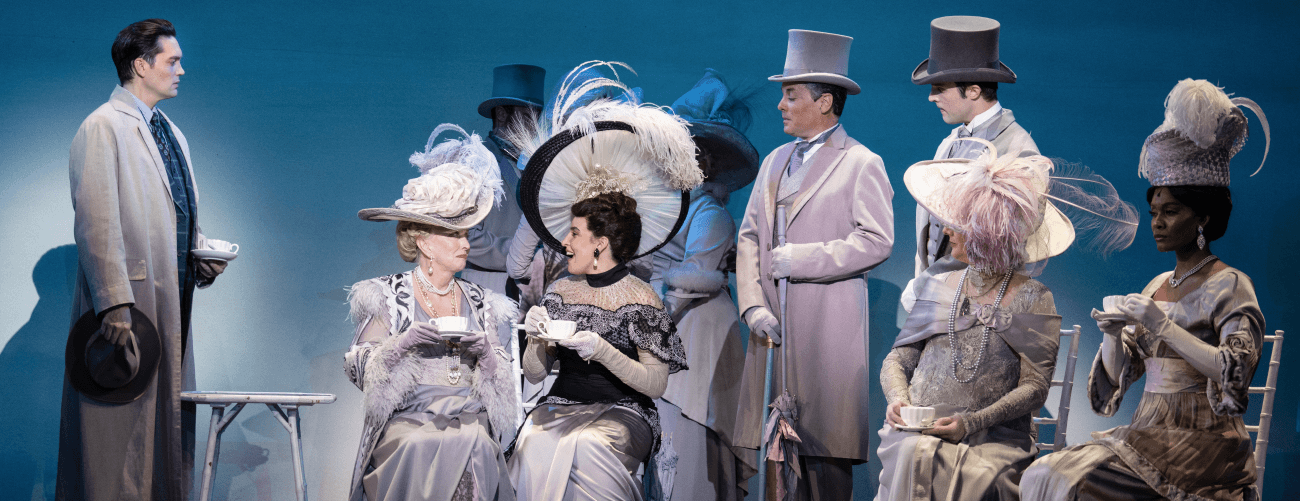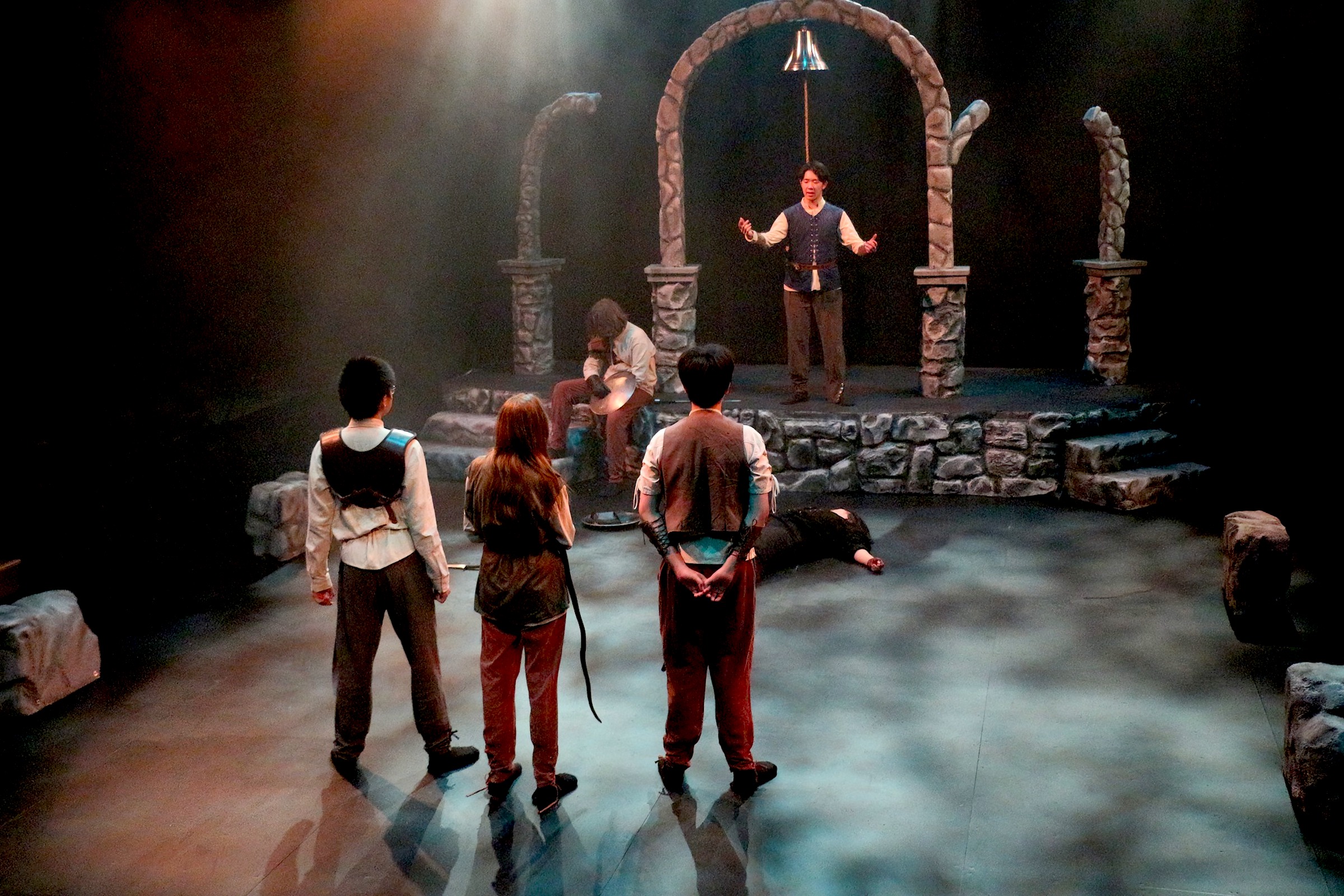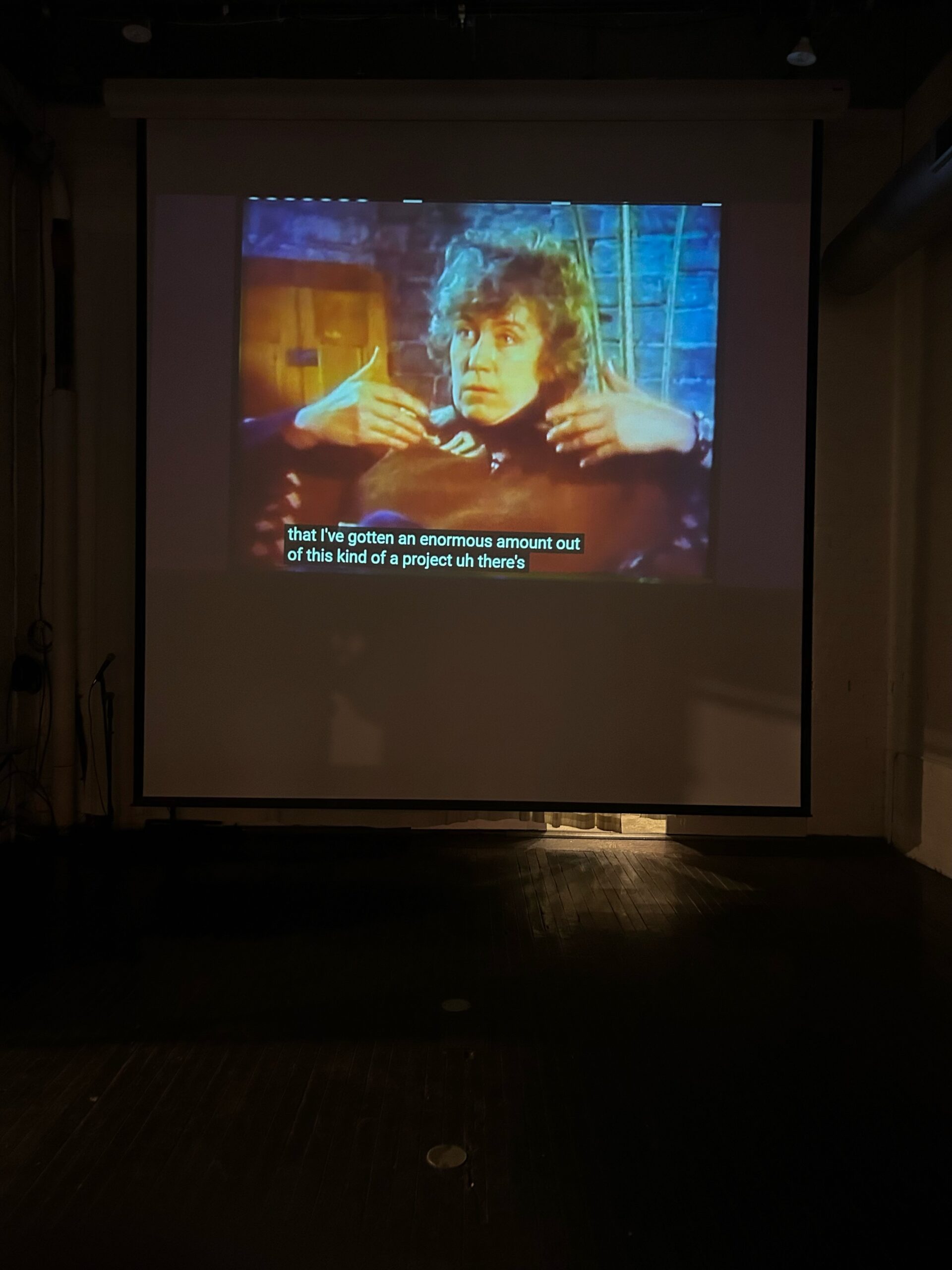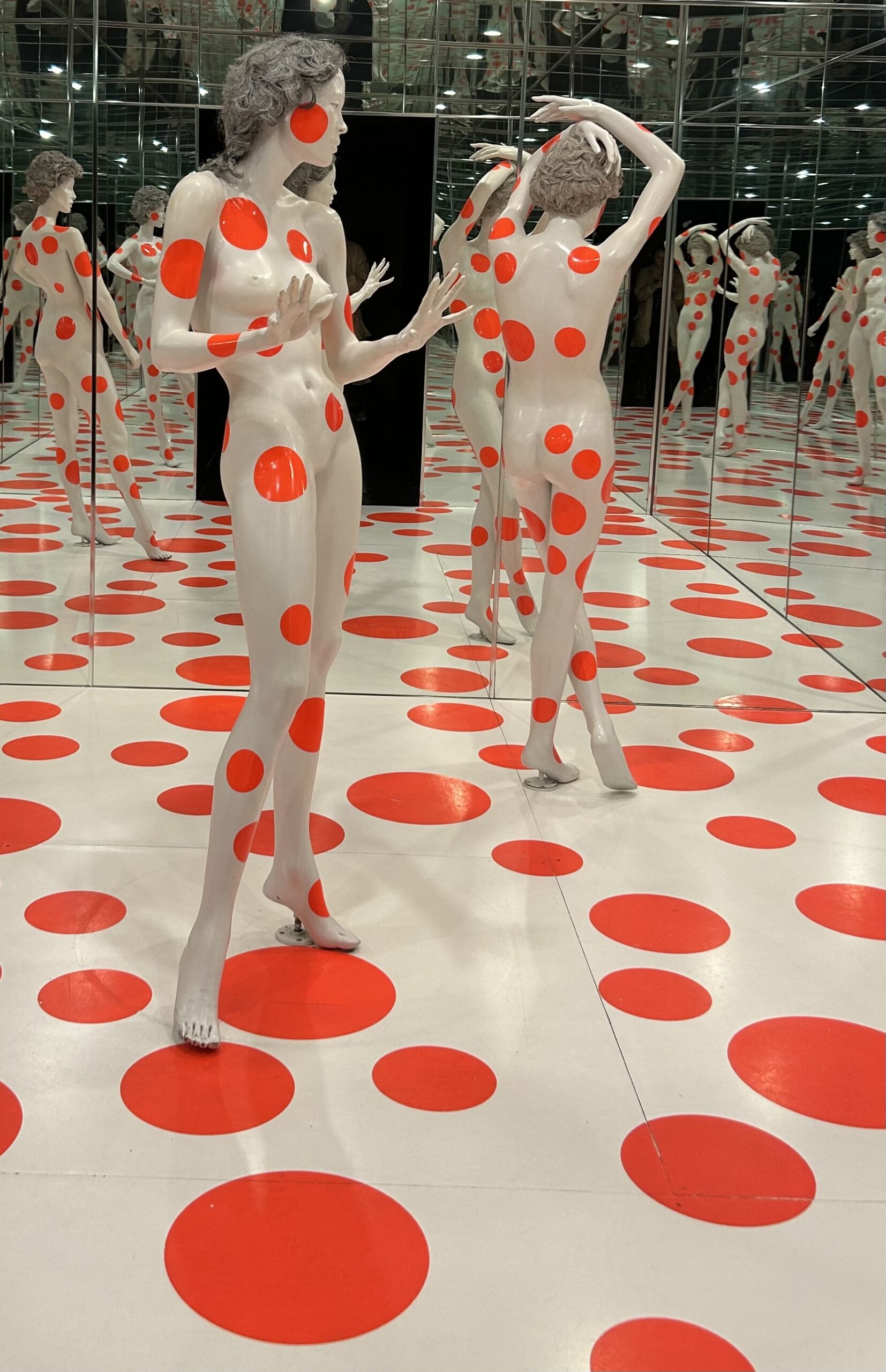By Gina McKlveen
When visitors step off Sandusky Street and enter The Andy Warhol Museum, they are instantly greeted by an industrial-esque entrance hall, complete with high ceilings, exposed pipes, studio lights, metal chairs, and high top-tables, and of course, Andy Warhol’s iconic red couch from his Factory. This location was the meeting space for my recent sit-down conversation with The Andy Warhol Museum Arts Educator, Chuck Pearson, about all things Andy, the aesthetics, the artist, the artwork, and the atmosphere.
The Aesthetics
“This building, actually, this is the old Frick & Lindsay building,” Pearson stated.
“[It] was built in 1911. This was an industrial warehouse for many years during Pittsburgh’s steel era. Back in the 70s and 80s it was a music store. And then it was empty for a period of time. That of course is when the [Andy Warhol] Foundation and the Carnegie [Institute] came together, got this building, and then refit it to be the [Andy Warhol] Museum.
“It’s interesting, if you walk through this Museum and look at its structure, you’ll see that the warehouse kind of aesthetics are still in play…It’s kind of an homage to Pittsburgh’s industrial heritage, but it’s also an homage to Andy’s ‘Factory’ and being a commercial artist and having that commercial side to him.”
The Artist
Although Warhol grew up in Pittsburgh and attended college at Carnegie Tech, now known as Carnegie Mellon University, majoring there in what today may be described as ‘Graphic Design,’ after graduating in 1949 he moved to New York City.
“Back when he graduated college in 1949, Pittsburgh was still very much an industrial city. It didn’t have the same kind of cultural and artistic aspects that it has today. Back then, a Pittsburgh boy wanting to be an artist, you want to go to a place where art was thriving. At that point, New York City was the big place.
“It’s kind of ironic that even though Warhol came from blue collar roots, that Steel City background and such, when he left Pittsburgh in 1949, after he graduated college and went to New York, he did not come back to Pittsburgh very much at all. There was kind of a distance he put between himself and Pittsburgh. I don’t think he wanted to be identified with Pittsburgh necessarily. He wanted the New York scene that’s what he wanted to be identified with.”
“Even though he did make an effort to kind of distance himself from his Pittsburgh upbringing in many ways, in some ways he could never really escape it.”
One such example of Warhol’s inability to escape his Pittsburgh industrial roots was his New York studio, aptly coined ‘The Factory’ for the amount of work, specifically the artists’ silk-screen prints which were produced there almost in conveyor-belt, industry-like speed and fashion.
“There’s strong [Pittsburgh] influence in [The Factory],” said Pearson.
“Not only was [The Factory] a place to hang out and party and have fun, it was also an actual working studio.”
“The Factory, also known as his ‘Silver Factory’ was a studio, a place where he and others did art, did screen printing, made films, not only was it that but it also became some sort of a social hub. It became a place in New York where people could go to hang out, to party, to network, to make connections with other people, and it was especially valuable when members of the LGBTQ community didn’t have a lot of safe places to go to, that became one of those safe places. It became a place where a lot of people who maybe would not have normally had opportunities to get into art, to get into media, to get into shows, to do all of these sort of things. The Factory gave them an opportunity for that.
“It attracted crowds across a whole spectrum of people. Members of The Rolling Stones went there to party. The Velvet Underground, Nico, but a lot of the people who worked with Andy and kind of became a part of his circle, were a part of that Factory scene,” Pearson continued.
“The Factory went through a few different addresses over the years. It didn’t stay in the same place. Over the course of his career, in early 1964, for the next 20 years it would go through a few different places there, but all Manhattan—all the same general area.”
The Artwork
Like his Factory, Warhol’s work also moved across several iterations, styles, mediums, and expressions throughout his career.
“He spent a lot of time in the 1960s doing film, screen prints of actors and celebrities, but as he got into his commissioned portraits era in the 1970s…he moved into a period of abstract work.”
Pearson recognized, “What you’ll notice with Andy’s abstraction is sometimes it will be coupled with very realistic pieces.”
“Even when he was a commercial artist, part of what got him his success as a commercial artist was his style of commercial art was so different from what other people were doing. Most industrial artwork at that time was very ‘Norman Rockwell-ish.’ That was the norm, that was the standard, the people in post-WWII conservative America were using for commercial and professional art. Andy was not ‘Norman Rockwell-ish.’ His style of realistic expression was quite different. I think that carries over into his abstract era and his experiment with color trying to find those kind of blends.”
Some of Warhol’s most well-known works, like his silk-screen portraits of Marilyn Monroe, are on view at The Andy Warhol Museum. As an Arts Educator, Pearson offered a knowledgeable perspective on these iconic prints, sharing insights on the artists’ technique and timing.
“A lot of what Andy was trying to accomplish with his different series, particularly of like pop portraits [of] celebrities, was exploring through color different moods and aspects of a celebrity. The one we have upstairs of Marilyn that’s a 1967 series. The prominent feature of that, of course, is the hot pink lips and the earrings.
“Well, timing is kind of interesting in that…He did that in 1967. Well, what was going on in 1967? Summer of Love, Monterey Pop Festival, hippie movement, Haight Ashbury. And I’m thinking well maybe, but there’s also some darker backgrounds in that piece as well, but there’s that hot pink. Was he perhaps going with the contrast of the flower power movement of the Summer of Love verses also all the other stuff that was going around that the time, too. Because what else was happening? America was embroiling in the Vietnam War, the Civil Rights Movement, and such. There was a lot of light and dark going on in America. You see a lot of that contrast with many of his pieces.
“…through color the artist, Andy, is able to explore those different shades of Marilyn. And he did that with a lot of his different celebrities and pop portraits, and of course the power of screen print process.”
The Atmosphere
Continuing Warhol’s legacy of silk-screen printing process is not limited to the artworks displayed at the Museum. In fact, the Museum operates a ‘factory’ in the downstairs portion of the building which is an actual hands-on studio that visitors can participate and create artwork in, very much like Warhol’s own Factory.
This initiative is just one of the many outreach programs and projects that the Museum participates in to adhere to its mission of promoting the arts here in Pittsburgh.
Pearson noted, “The Warhol Museum is the centerpiece of the Pop District, which for last couple years has been trying to sort of create and artistic, cultural center point here on the North Shore to invite local artists to participate [in].”
Pearson also emphasized the Museums many extra-curricular activities outside the Museum’s regular business operations, “Like the Warhol Academy, youth programs, being very much in tune with the LGBTQ community here, of course that’s a part of Andy’s legacy also and wanting to provide opportunities for inclusion… We do outreach programs to schools, to shelters, to organizations, libraries. We have opportunities for schools and other organizations to do workshops here on site. We operate the print lounge, which is a part of the Pop District. It’s kind of a larger working space to be able to do projects.”
The Museum is also expanding its reach in the coming years with a brand-new structure expected to be completed in 2026 that will mirror the part of Warhol’s Factory that was known for its social activities, hosting parties, and attracting crowds like artists, actors, and musicians.
Based on Pearson’s experience with the Museum, he stated, “People love to use the Warhol for all sorts of venues and events. With the new facility, it’s mainly going to be devoted to special event venue space [for] functions and concerts, to help attract awareness to what’s going on here.”
In the next few months, the Andy Warhol Museum will celebrate its 30th anniversary since its founding.
“The Museum opened in 1994. It has been a point of cultural and artistic interest and attraction for all of those years. Especially in a time, back in 1994, when Pittsburgh was struggling to…keep afloat, and to try to find ways to keep the city going once the whole industrial aspect of the city died. But there’s been a lot of efforts in recent years to build up Pittsburgh in terms of being a progressive and 21st century city, and bringing in arts and culture has been a major part of that. The whole cultural district downtown, the Carnegie museums, all of this, the Heinz, you know tried to help to bring a renewed sense of life to Pittsburgh, which has been very successfully done. The Warhol Museum was coming in at time when that was starting to happen, so there was opportunity.”
Those opportunities have only multiplied over the years. Starting May 18, 2024, visitors will have an opportunity to see the work of artist, KAWS, in collaboration and conversation with some of Warhol’s darker themes around death and disaster. More information on this upcoming exhibit can be found here: https://www.warhol.org/exhibition/kaws-warhol/
Chuck Pearson is a California native who relocated to Pittsburgh in June 2022 after teaching high school English for many years. A published author, Pearson’s writing credits include the Once Upon A Realm fantasy novel series (written as C.J. Pearson) and the Fate, Chance, and Choices trilogy (written under a pen name, Ariel Archer). For the past year and a half, he has worked at the Andy Warhol Museum as a Gallery Associate and Arts Educator.
-GM
Hear the full interview here:


